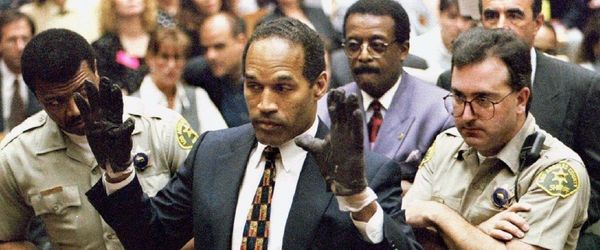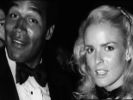Eye For Film >> Movies >> OJ: Made In America (2016) Film Review
OJ: Made In America
Reviewed by: Jennie Kermode

OJ Simpson first achieved fame in the mid 1960s. He has barely been out of the news since. Ezra Edelman's definitive documentary about his life goes back still further to explore is childhood and provide some historical context for the issues which he would become entangled with. This is a lot for any film to take on, and that's presumably the reason why Edelman chose to make it nearly eight hours long. It's unfortunate, because there's a much better five-hour documentary inside this, trying to get out.
The challenge here lies in finding balance. Just how does one make a film about a life as dramatic as Simpson's and keep everything in perspective? Edelman divides his film into five parts; they all have value but they don't merit equal running time. The first section is the weakest and may sadly dissuade some viewers from proceeding to the later ones. Whilst there are some interesting revelations about Simpson's youth, notably anecdotes about what might be regarded as charmingly cheeky rule-breaking were it not for the darker overall context - there's also a great deal of padding and repetition. It's important for our understanding of latter developments that we are familiar with some of the friendships Simpson made at this time, and with revelations about his father, but these things might have been approached far more efficiently, giving the film greater impact.

By contrast, the historical positioning of the story is succinct and perhaps a little too sparse. Importantly we return to the famous footage of LAPD officers beating Rodney King, and other contemporary events that had scandalised the black community are addressed, but it would have been useful to consider, at least briefly, the long history of dubious actions taken against black US citizens by white people representing the law which really gave weight to the racial dimension of Simpson's later trial. Also missing, perhaps tellingly, is anything on the history of women's rights in America, notably in relation to domestic violence. With gendered relations also a pivotal aspect of the story, it's disappointing to see very few women among the interviewees and no social context either for Simpson's evident misogyny or for Nicole Brown's hesitation in getting away from him.
Edelman's strength lies in his ability to collect evidence, to engage with interviewees and to source archive footage. It's clear that assembling the material for this film must have taken a monumental effort. This really pays off in the sections dealing with Simpson and Brown's relationship, Brown and her friend Ronald Goldman's murders, and the trials that followed. Few viewers will find that they are not confronted with something new, and some of the revelations are truly shocking. The stacking of pieces of information one on top of another is important here both in outlining the case made against Simpson and in communicating the pressures on the individuals involved. Explicit pictures of Brown's wounds, both from domestic violence incidents and from her murder, are vital in resensitising viewers to the reality of suffering which was often sidelined in the media at the time of the trial and which has since lost its potency through familiarity.
Although there have been a number of films about this saga, Edelman's is unique in its thoroughness. It includes long interviews (shown in fragments) with most of the major players, including Mark Fuhrman, whose fall from grace due to racism became a key factor in the murder trial, who speaks calmly and candidly about the hole process despite its dramatic impact on his life. He's one of several interviewees who take the opportunity to confess their failings and regrets, particularly in regard to missed opportunities to help Brown. Fred Goldman, though he doesn't get a lot of screentime, powerfully communicates his grief at the loss of his son and lets us know something about the young man whose death has often been treated as a tangent to the important issues. Edelman has also obtained impressive access to Simpson's defence team, who discuss - but rarely defend - the strategies they used to save a client with a massive weight of evidence against him. Then there is testimony from jurors at the trial who admit they simply couldn't face prolonged deliberations after a trial that had already stolen almost a year of their lives.
Edelman's thesis seems to be that the result of that trial - and of the civil suit that followed and the later trial for a separate incident involving Simpson three years later - was ultimately a product of American history as much as it was about Simpson himself. Indeed, despite the hours of archive footage, it's difficult to say how much we see of the real Simpson, as he continually seems to be performing. Nevertheless, there's a lot here for psychologists to dig into, much of which appears to fit classic models of destructive narcissism. Numerous speakers talk about how charming Simpson could be in person and how, s a result, they found it difficult to criticise him. A career profile lets us see the magic he brought to the sports field and covers his work in films and advertising. This will be of particular importance to international viewers - despite the film's repeated assertion that everybody knew who Simpson was at the time of the murders, a quick poll suggests otherwise - and US sports fans will enjoy seeing favourite moments over again, but this is another section that would have been more effective if trimmed.
There's much about this film that is fascinating and it's n interesting venture in the art of documentary-making, but ultimately it doesn't do justice to the effort involved, and it deserves a recut in order that its stronger sections might be properly appreciated.
Reviewed on: 14 Nov 2016
















